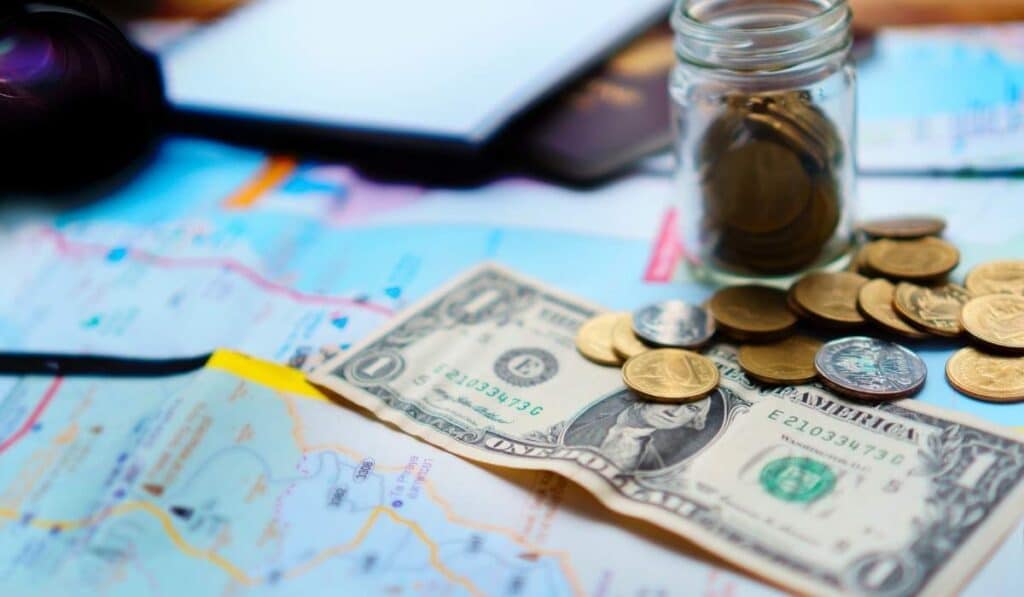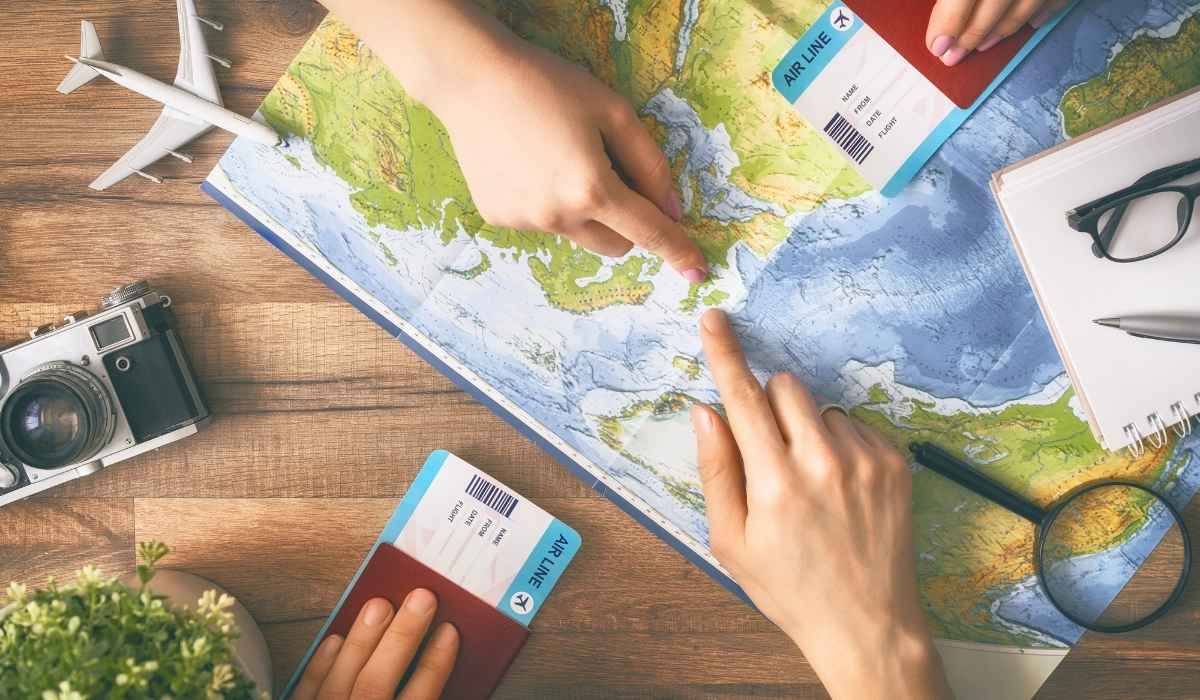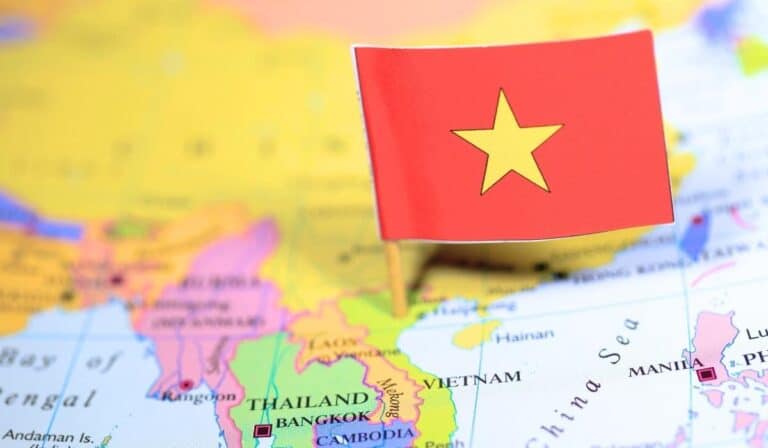So, you’ve finally booked that international trip—passport in hand (hopefully), excitement brewing, and travel Pinterest boards overflowing with international travel tips. For starters, Congratulations! Finally, a glorious stamp on your passport…But also, all the best to you, because traveling abroad for the first time can feel like learning how to be an adult all over again—only in another country, in another language, and with a jet lag. Yes, it is entirely different from traveling in your own country, which many of us consider our ‘safe space’. But when you have to travel to a foreign land, it is natural to feel anxious, confused and thrilled with excitement – all at the same time.
We have today tried to answer all the questions that first time international travelers usually think about, because when you are equipped with this information, believe us your first international trip will be a roaring success. To ensure your first trip to a foreign land has a smooth sailing, keep reading to gain insights that will immensely help you.
How To Prepare For An International Trip?
When I went for a Youth Exchange Program in Belgium at the age of 16, I thought I had it all figured out. Spoiler: I didn’t. I packed five thick sweaters during a European summer (rookie error #1). I forgot my universal adapter, so my phone died at all the wrong moments (rookie error #2). And to top it all off, I spent my nights chatting with my boyfriend back in India, which led to an international postpaid bill that nearly gave my dad a heart attack. Yep, live and learn. And seek help before you plan your international trip.
That trip taught me more than just cultural etiquette; it taught me how crucial the little things are when preparing for international travel. So if you’re getting ready for your first time abroad, don’t just wing it. A little planning goes a long way, and a few smart tips for trips can save you from avoidable chaos.
What All Is Required For International Travel?
According to the Global Travel Trends Report, 59% of global respondents plan on taking 1 – 3 international trips in 2025. Travel is booming, and for many, it’s the perfect time to finally check off those international dream destinations. If you’re gearing up for your first overseas adventure, it’s easy to get caught up in the excitement and overlook the essentials. But with LGST, we are by your side for anything ‘travel’.
1. Start with a passport
It’s very important to get your basics sorted! You’d be surprised at how many people skip essential travel preparation and plan their trips without even checking their passport status. Well, I am one of them…I once booked a flight to Iceland, only to discover my passport was expired. Yep. Don’t be me. That moment of panic at the check-in counter? Unforgettable, and not in a good way.
The passports have longer validity, so most people do not bother to check them on – unless they book a flight. And if you are traveling to an international destination, the time for renewal and other processes can take time (anything between a week to a month), so a check is absolutely necessary before you actually book travel tickets.
Make sure your passport has at least 6 months validity from your return date. Some countries won’t let you in otherwise. It’s a weird flex, but a real one. Also, keep copies of your passport handy.
2. Get your visa as applicable
It all depends on where you’re planning to go. For instance, countries like Thailand offer visas on arrival for many nationalities. But if you want to tick Russia off from your traveling abroad checklist, then get ready for some paperwork!
While you can book the flights, you cannot board them if your visa is not valid. So, ensure you know about the visa process to the country you are visiting – some countries allow visa-free entry for certain nationalities, while others require you to apply in advance or obtain an electronic travel authorization (ETA)
Interestingly, for my Chinese visa, they took my entire travel history of five years. It was like a curious auntie was making me narrate my life story —“Yes, I did go to Mexico in 2019. No, I wasn’t doing anything sketchy. Yes, I have proof.”
LTST TIP- Store soft copies of all your travel documents such as passports, visas, flights etc. on your cloud storage. As we all know, the world is digital!
3. Vaccinations and travel insurance
Smart international travel is incomplete without travel insurance. It helps you in case you miss your flight, lose your baggage, misplace your passport or have a medical emergency. In fact, insurance is like a parachute. That sprained ankle in Bali? Yeah, insurance saved me $900.
Look for travel insurance plans from reputed countries that cover-
- Emergency medical care in a foreign land
- Trip cancellations or interruptions
- Lost or delayed baggage
- COVID-19 coverage (if required, depending on the country you are traveling to)
Also, some countries require you to get vaccinated. For instance, Yellow Fever vaccination is compulsory for certain parts of Africa or South America. Other common travel-related vaccines include Hepatitis A and B, Typhoid, Rabies (especially if you’ll be around animals), and Japanese Encephalitis if you’re heading into rural Asia during mosquito season. Some countries require vaccination certificates (e.g., yellow fever) or proof of COVID-19 vaccination or testing. Make sure you have all necessary documents and bring physical or digital copies.
Health Hack: Schedule vaccinations at least 4–6 weeks before your travel date. Some vaccines require multiple doses or need time to become effective. And don’t forget to carry your International Certificate of Vaccination—it’s your golden ticket in some countries.
4. Research your destination thoroughly
This is a safe bet when you are traveling abroad, even if it is your nth time. Researching your destination includes getting to know about the weather, local customs, places to visit, modes of transport in that country, dressing etiquettes, prohibited things to do, safety and more. It helps to know in advance whether there are local trains to and from your hotel to the places you plan to see. It also gives you a sense on how to dress in a conservative country, and what to expect in food and culture in a place. There are many strange laws in various countries (like chewing gum is illegal in Singapore) which you should be aware of in advance.
- Do your dietary needs meet the foods offered by the country? What are the options?
- Are there enough ATMs and Cardless shops or you need to carry cash (carrying cash also has limits, so check that too).
- Can you drink tap water?
- Do people speak and understand English?
- Are there any specific rules with respect to how to dress and conduct yourself?
- How approachable is your hotel via the local transport?
- How is the crime rate of the country you are visiting?
- What are the tipping and PDA etiquettes?
Keep a list of such tips handy to use when required.
5. Planning And Budgeting
One of the most important international tip would be to plan and budget your trip well-in-advance. Budgeting is one of the most critical aspects of international travel, especially if it’s your first trip abroad. A well-thought-out travel budget helps you stay in control of your expenses and ensures you don’t run out of money mid-trip. Let’s dive deeper into how to plan your travel budget effectively.

Consider breaking down your trip into heads such as :
- Flights: Probably the most expensive head in international travel are the flight tickets. Plan your travel well in advance and book tickets after comparing the prices provided by all the major flight-booking sites. You may need to pay extra for the seats and food, so check on that as well.
- Accommodation: Where you are going to stay in an unknown country also assumes a lot of travel. When traveling with family, consider your needs and book your hotel(s) accordingly. Check how well-connected is the hotel to the attractions you are visiting, and book in advance depending on your budget.
- Food: Food will also be a part of your daily spends- so do plan ahead on what and where will you eat, plus the cost. If your hotel is a bed-and-breakfast, make sure you step out after eating your fill. Work out on average costs of meals for yourself/your family to arrive on a per day food budget. If you intend to eat in high-end restaurants once in a while, factor in that too.
- Transportation: Traveling safe in a foreign country is a top priority. If you have booked a tour from a travel company, make sure you have all the details with you, such the the pick-and-drop timings, type of vehicles. shared or own transport etc. If you are going to explore the country on your own, decide on whether you will use public or private transport and factor in the common costs. In our opinion, public transports are better and much cheaper than private rides.
- Entry tickets to attractions: One of the most essential international travel tips is to consider and budget the cost of entry tickets to the popular attractions you are planning to visit. People usually list the attraction but do not check the costs, and then be surprised. Plus, at times, booking in advance might give you some discounts as well. Another benefit is steering clear of long queues when your entry tickets are already sorted in advance.
- Souvenir Shopping: When in a foreign country, it is natural to keep a day reserved just for shopping. But how much to shop must be budgeted with the number of souvenirs you want to buy and other luxury spends you may want to make. To avoid getting overboard, look up the average prices of items you think you will definitely buy, and chalk out a budget that you stick to.
- Extra Spends: Of course, we cannot rule out an emergency or additional spends when traveling to a foreign land! It is wise to keep some money as your ‘extra’ that you can use if the need arises (even if it is for shopping at the airport’s duty free stores!).
Once you have chalked out the above, you will have a fair idea of your travel destination, the budgets and the itinerary along with a list of dos and don’ts. Our top international travel tips are designed to help you plan your first trip abroad smartly. International travel is thrilling, but it also comes with its fair share of “Oops, I didn’t think of that” moments. From navigating airport chaos to mastering the art of packing (without needing a sherpa), we’ve rounded up our best tips to keep your adventure smooth, stylish, and only slightly chaotic—in the best way.
6. Pack smart, not heavy
Let’s be honest, nobody likes dragging extra weight through airports and cobblestone streets. So, pack smart! For starters, do some basic research on the weather and dress norms of your destination. Packing a bikini for a conservative country? Not a great idea!
Here’s some more vacation advice on how to strike the perfect balance:
- Check baggage policies first: Since different airlines have different baggage policies, know your limits before packing luggage.
- Use packing cubes/compression bags: These help organize your bag, save space, and keep clean clothes separate from laundry.
- Roll, don’t fold: Rolling clothes not only saves space but also helps prevent wrinkles. It’s a game-changer.
- Don’t forget adapters and chargers: Bring a universal adapter and backup battery. Some regions use different voltages—double-check before plugging in!
- Leave room for souvenirs: If shopping is part of your plan (let’s be honest, it usually is), don’t fill your bag to the brim. Leave 10–15% of your luggage empty.
When traveling abroad for the first time, it is natural to want to pack essentials for cold and hot weather, and if you are traveling to a country like Vietnam where there is considerable difference in the weather along the length and breadth, you’d naturally feel overwhelmed. The tip here is to not get carried away, and be open to shop a few memorabilia if need arises.

7. Staying connected while traveling abroad
Traveling overseas solo can sometimes feel a bit isolating, especially when you’re far from everything familiar. Homesickness is a totally natural part of the experience but the good news is, technology can be your emotional lifeline. From video calls with family to staying active in group chats or travel communities, staying connected is easier than ever.
With a little planning (getting a local prepaid SIM, using public Wifi, downloading key apps, or scheduling virtual check-ins), you can keep the loneliness at bay and feel grounded no matter where your solo adventures take you. If you’re traveling to places like China, Turkey, or the UAE, a VPN may be essential for staying connected and bypassing local restrictions.
Getting lost in a foreign city without Wi-Fi can be stressful. Download offline maps with apps like Google Maps or Maps.me before you go.
Other helpful travel apps include:
- Rome2Rio for transportation options
- TripIt to organize your itinerary
- Currency Converter Plus for quick calculations
- WhatsApp for international messaging and calls
8. Protect your stuff like a pro
If you don’t want to become a prime target for petty theft in tourist-heavy areas, you have to make a few smart choices. While you can’t eliminate every risk, you can take steps to avoid standing out as an easy mark.
Keep these handy tips for trips in mind:
- Use a crossbody bag or fanny pack (makes it harder to snatch than totes)
- Never use a back pocket for valuables (it’s like an invite to pickpockets)
- Wear money belts under clothes to keep your cash and passport
- Invest in theft-proof gear (Anti-theft bags come with hidden compartments)
- Stay alert in crowded areas (especially if someone ‘bumps’ into you)
Never carry your passport unless absolutely necessary. Keep it safe in your accommodation and carry a copy instead.
9. Handle jet lag like a boss
Long flights across multiple time zones? Say hello to jet lag. But don’t worry, it’s manageable with a little planning. One essential advice for traveling is to stay hydrated: drink plenty of water before and during the flight, and skip alcohol and caffeine, which can dehydrate you and mess with your sleep.
Another smart move? Start adjusting your sleep schedule 2–3 days before departure to align more closely with your destination’s time zone. A little prep can go a long way in helping you hit the ground running, rather than crashing into a nap.
10. Learn the local culture and a few local words
The things to prepare before traveling aren’t always things. You also need to do a little research on the basic customs of the nation. For example, when you go to Japan, you don’t have to tip but if you go to the US, you better! (think 15–20% in restaurants)
Here are some common dress codes and customs to keep in mind:
- Cover your shoulders and knees (and sometimes head) when you go to temples, mosques and churches in Asia, Middle East and parts of Europe.
- In conservative countries, avoid tank tops and short shorts; they might attract unnecessary attraction and be seen as disrespectful.
- In many Asian homes, it’s customary to remove your shoes indoors—don’t forget to check before walking in.
- Learn how to ask some basic questions like “Where is the bathroom?” , “How much does it cost?”, “I need help”.
11. Pack your snacks wisely
Hunger hits at weird hours while traveling abroad, and your stomach doesn’t care if it’s 3 a.m. or 10 time zones ahead. Whether you’re stuck at a long layover (when nothing is open) or on a 6-hour bus ride with no stops, having snacks on hand can be a game-changer.
So, here’s a travel tip to consider before traveling, especially when it comes to surviving unpredictable meal gaps: Carry snacks like granola bars, trail mix, instant noodles and chocolates. I once traded a bag of M&Ms for Wi-Fi in rural Hungary. Desperate times. Sweet success. True story.
12. Smart money moves
Managing money abroad doesn’t have to be stressful—if you prepare ahead. One crucial item to include in your ‘before you travel checklist’ is making sure your finances are travel-ready. Before you fly out, let your bank and credit card provider know your travel dates and destinations to avoid getting your cards blocked for suspicious activity
Here’s how to avoid rookie mistakes and unnecessary fees:
- Skip airport currency exchange kiosks: They offer some of the worst conversion rates. Unless it’s an emergency, wait until you reach the city.
- Use ATMs strategically: Use bank-affiliated machines for reliability. Be mindful of withdrawal fees both local and from your home bank.
- Carry a mix of cash and cards: Some places (like street vendors or local transport) are cash-only, while others may prefer contactless payments. Also, make sure your cards have the chip-and-PIN feature, which is standard in many countries.
- Know your card’s foreign transaction fees: Some credit and debit cards charge 1–3% on every international purchase. Choose cards that have no foreign transaction fees and consider carrying a backup debit or credit card. Using cards is often safer than carrying a lot of cash.
- Download a currency conversion app: Apps like XE, Revolut, or Wise help you track exchange rates, calculate prices in real time, and even spend directly in local currency with digital wallets or multi-currency cards.

13. Extra planning for the kids
Make sure you have all the documents needed to travel abroad, including a passport for your baby and any required visas. Pack a well-equipped diaper bag with essentials like diapers, wipes, extra clothes, and baby food/formula. Consider bringing a lightweight stroller or baby carrier for easier mobility, especially through airports and crowded streets.
Don’t forget a travel-sized first-aid kit with baby-safe medications, teething gel, and a thermometer. Before you go, consult your pediatrician about any necessary vaccinations and discuss how to manage your baby’s sleep and feeding schedule while crossing time zones.
Pro Tip: One of the most overlooked tips for international travel with a baby is booking flights that align with nap or sleep times. A sleeping toddler makes for a far more peaceful flight—for both you and fellow passengers. Bring a few quiet toys, favorite snacks, and comfort items like a blanket or pacifier to help soothe your little one during takeoff and landing.
14. Prioritize comfort for your feet
One of the most underrated traveling tips and hacks? Pack your most comfortable pair of walking shoes—the kind you’ve already broken in and can wear all day without thinking twice. Traveling means exploring and exploring means walking…A LOT.
Be it long airport terminals or impromptu hikes, you definitely don’t want to take back blisters on your feet as souvenirs! Most European and South East Asian countries require you to walk for hours to see their attractions, so speaking from experience, ditch those heels and pack a comfortable pair of your favorite sneakers on the go.
Pro Tip: If you’re buying new shoes before your trip, break them in at least 2–3 weeks ahead of time. And throw in some blister patches or cushioned insoles—just in case.
15. Carry a reusable water bottle
One of the best travel tips (especially for budget-conscious travelers and seniors who want to stay healthy), is to pack a high-quality, reusable water bottle. Not only does it save money, but it also helps reduce your plastic waste while traveling.
At a lot of places, tap water is not safe to drink. This is when a reusable bottle with a built-in water filter comes in very handy! It’s not just safer and cheaper but also kinder to the environment.
Finally, we hope that the first international trip you take is exciting and unforgettable! Remember, pack light and smart. May you enjoy every step of it, from paperwork to culture shocks, from figuring out public transport to currency confusion.
International travel can come with unexpected challenges—missed flights, language barriers, cultural misunderstandings. The key is to stay calm, adapt, and embrace the experience.
Being open to new foods, traditions, and ways of life is what travel is all about. Mistakes will happen, but they often lead to the best stories. With the right mindset and these 15 international travel tips, you’re already several steps ahead of the game. So go ahead—stamp that passport, chase that sunrise, try that weird street food, and say yes to new perspectives. The world is waiting, and now, you’re ready. Bon voyage!



